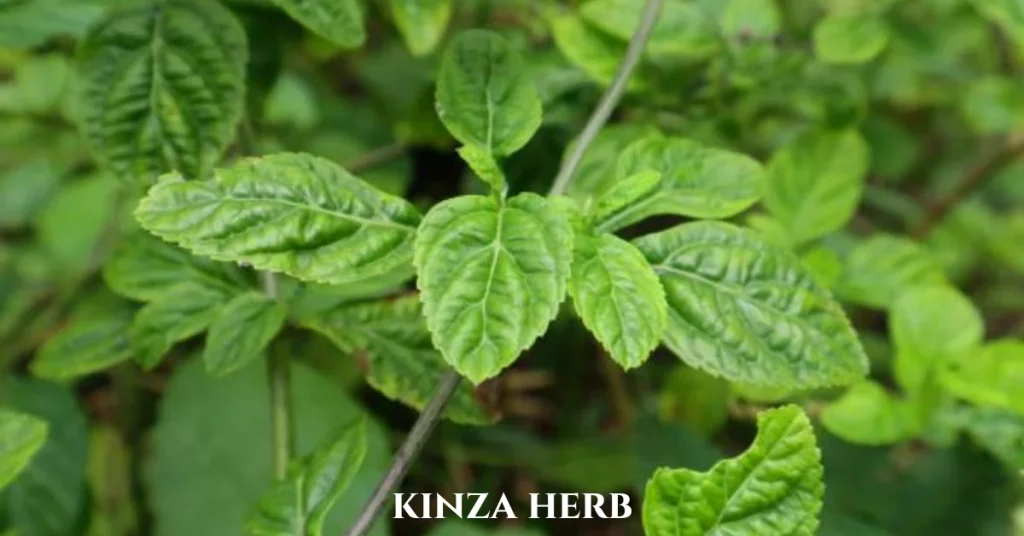Introduction to Kinza Herb
Are you seeking a natural way to boost your health and beauty routine? The Kinza herb, also known as coriander or cilantro, is a vibrant green plant celebrated not only for its culinary appeal but also for its powerful medicinal properties.
Used in traditional medicine for centuries, this versatile herb offers numerous benefits for the skin, digestion, and overall wellness. In this article, we’ll explore the origins, health and skin benefits, uses, and precautions related to Kinza herb.
History and Origins of Kinza Herb
Kinza herb has a long-standing reputation in herbal medicine, with its use dating back thousands of years.
- Origin: Believed to have originated in the Mediterranean and Western Asia
- Ancient Egypt: Used in embalming rituals due to its aromatic and preservative qualities
- Traditional Chinese Medicine: Known for treating digestive and inflammatory conditions
- Global Spread: Traveled via trade routes to Europe, the Middle East, and Asia, becoming a global herbal staple
Kinza remains a cross-cultural favorite, used in both kitchens and traditional healing practices worldwide.
Stick around and explore more articles that might catch your interest!
Medicinal Properties of Kinza Herb
Kinza herb isn’t just flavorful—it’s medicinally potent. Its leaves and seeds are packed with therapeutic compounds.
Key Medicinal Benefits:
- Rich in Antioxidants
Helps neutralize free radicals and reduce oxidative stress - Antimicrobial Properties
Fights harmful bacteria and supports immune health - Digestive Support
Relieves gas, bloating, and improves overall gut health - Detoxifying Agent
Helps remove heavy metals and supports liver function
These features make Kinza a strong ally in supporting general wellness and disease prevention.
Skin Benefits of Kinza Herb
Kinza herb has impressive skincare benefits that make it an excellent addition to natural beauty routines.
Top Skin Benefits:
- Fights Acne and Blemishes
Its antibacterial and anti-inflammatory properties help clear breakouts - Slows Skin Aging
Antioxidants protect against environmental damage and premature aging - Hydrates and Softens
Natural oils in the herb nourish the skin and maintain moisture balance - Brightens Complexion
Applying a paste of fresh leaves enhances glow and evens skin tone - Treats Fungal Conditions
Effective in managing eczema, psoriasis, and other skin irritations
Regular topical use or consumption of Kinza can lead to visibly healthier and more radiant skin.
Health Benefits of Kinza Herb
Kinza isn’t just skin-deep—it works wonders for internal health too.
Core Health Advantages:
- Anti-inflammatory Support
Helpful in managing arthritis and other inflammatory conditions - Digestive Aid
Stimulates appetite and eases bloating or indigestion - Blood Sugar Control
May help lower glucose levels naturally - Cardiovascular Health
Balances cholesterol and supports heart function - Immune Defense
Antibacterial compounds help protect against infections
Adding Kinza to meals is a simple and tasty way to boost overall health.
How to Use Kinza Herb in Daily Life?
Incorporating Kinza into your routine can be easy and enjoyable.
Everyday Uses:
- Add fresh leaves to salads for flavor and nutrients
- Blend into smoothies or juices for a refreshing taste
- Use in cooking with curries, soups, rice, or stews
- Dry the leaves and use as a spice or garnish
- Steep seeds or leaves in tea for daily detoxification
Potential Side Effects and Precautions
Despite its benefits, Kinza may not be suitable for everyone.
What to Watch For:
- Allergic Reactions
Symptoms may include rashes, itching, or stomach discomfort - Medication Interactions
Especially for those on blood sugar medications—consult a doctor - Pregnancy and Breastfeeding
Safety is not well-established; seek medical advice - Topical Use
Perform a patch test before applying it directly to the skin
Moderation and professional guidance ensure safe and beneficial use of this herbal powerhouse.
Conclusion
Kinza herb, also known as cilantro or coriander, is more than a flavorful kitchen staple—it’s a natural remedy deeply rooted in ancient healing practices. With benefits ranging from digestive support to clearer skin and stronger immunity, Kinza deserves a spot in your wellness toolkit.
Whether consumed fresh, brewed into tea, or used topically, this versatile herb offers a holistic approach to health. Just be mindful of potential side effects, and always consult a healthcare professional before starting any new herbal regimen.
Don’t miss out on more great reads—click through our featured posts!
FAQs
Is kinza the same as coriander or cilantro?
Yes. “Kinza” is another name for coriander or cilantro, referring to the same plant used in cooking and herbal medicine.
Can I use kinza herb for acne treatment?
Yes. Kinza’s antibacterial and anti-inflammatory properties make it effective against acne when used topically or consumed regularly.
Is it safe to drink kinza tea every day?
Generally, yes—for most people. Kinza tea can aid digestion and detoxification, but consult your doctor if you’re pregnant or on medication.
What part of the kinza plant is used for health benefits?
Both the leaves and seeds are beneficial. Leaves are often used fresh or dried, while seeds are brewed or ground into spice.
Are there any drug interactions with kinza herb?
Yes. Kinza may interact with medications for diabetes or blood pressure, so check with a healthcare provider before regular use.







